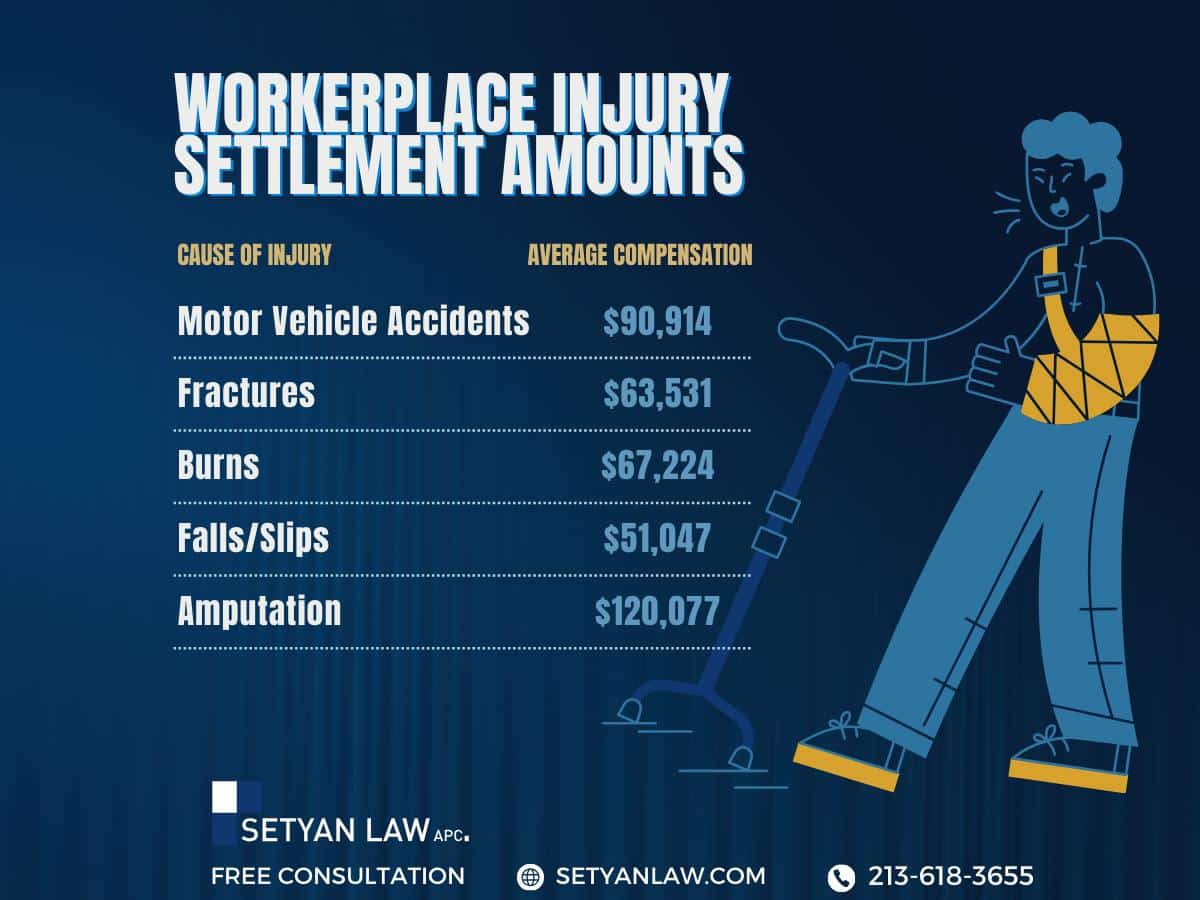Updated April 11, 2025
Catastrophic Injury Benefits
Catastrophic injuries can dramatically alter the lives of victims, affecting not only their physical health but also their ability to work and maintain their livelihoods. In the context of workers’ compensation, understanding the benefits available for catastrophic injuries is crucial for those affected. This article will provide a comprehensive overview of catastrophic injury benefits within California workers’ compensation law, detailing the rights and protections available to injured workers.
Understanding Catastrophic Injuries
Catastrophic injuries are classified as severe injuries that result in long-term or permanent disabilities. These injuries can significantly impair an individual’s ability to perform daily tasks, including their job responsibilities. Common examples include:
- Severe brain injuries: These can lead to cognitive impairments and difficulties in communication.
- Spinal cord injuries: Injuries that may result in partial or complete paralysis.
- Loss of limbs: Amputation or severe damage to arms or legs.
- Severe burns: Injuries that cover large areas of the body and require extensive medical treatment.
Due to their nature, catastrophic injuries often necessitate ongoing medical care, rehabilitation, and sometimes modifications to the individual’s living or working environment.
Workers’ Compensation Benefits Overview
In California, workers’ compensation laws provide a safety net for employees who suffer injuries on the job. For those with catastrophic injuries, the benefits are typically more extensive compared to standard workplace injuries. Key benefits include:
Medical Coverage: Injured workers are entitled to have their medical expenses covered, including hospital stays, surgeries, rehabilitation, and ongoing treatment.
Wage Replacement: Employees may receive compensation for lost wages due to their inability to work. This is particularly significant for catastrophic injuries, where the likelihood of returning to work is minimal.
Permanent Disability Benefits: If a worker is deemed permanently disabled, they may qualify for ongoing disability benefits, which provide financial support for the long term.
Job Protection Under Workers’ Compensation
One of the critical aspects of workers’ compensation is job protection. Employees who sustain catastrophic injuries may be concerned about their job security. Here’s how the system works:
Right to Reinstatement: Injured workers have the right to return to their position or a similar role once they are medically cleared to return to work. However, this may depend on the severity of the injury and the employer’s ability to accommodate any new limitations.
Employer Obligations: Employers are required to explore reasonable accommodations to enable employees to return to work. This can include modifying job duties, providing assistive devices, or altering work schedules.
Navigating Workers’ Compensation Claims
Filing a workers’ compensation claim for a catastrophic injury is often complex and may involve several steps:
Report the Injury: Employees must report their injury to their employer as soon as possible. This initiates the claims process.
Seek Medical Attention: It’s crucial to receive medical care and documentation of the injury, which will be necessary for the claim.
File a Claim: The injured worker must file a claim with their employer’s workers’ compensation insurance provider. This includes completing the necessary forms and providing medical documentation.
Legal Representation: Given the complexities of catastrophic injury claims, it is advisable to seek legal counsel. An experienced workers’ compensation attorney can help navigate the process, ensuring that the injured worker receives the benefits they are entitled to.
The Role of Legal Counsel
Legal representation can be invaluable for individuals dealing with catastrophic injuries. Here’s how an attorney can assist:
Claim Evaluation: A lawyer can assess the specifics of the case and determine the best course of action.
Negotiation with Insurers: Attorneys can negotiate with insurance companies to ensure that victims receive fair compensation.
Appealing Denied Claims: If a claim is denied, legal counsel can help file an appeal and represent the injured worker in hearings.
Understanding Permanent Disability Benefits
In cases of catastrophic injury, many workers may qualify for permanent disability benefits. Here’s what to know about these benefits:
Types of Permanent Disability: Permanent disability can be categorized as total or partial. Total disability means the injured worker cannot perform any work, while partial disability indicates that the worker can still perform some job functions but with limitations.
Benefit Calculations: The amount of permanent disability benefits is typically calculated based on the worker’s average weekly wage and the severity of the disability. In California, this is often expressed as a percentage of the worker’s lost earning capacity.
The Impact of Catastrophic Injuries on Employment
The repercussions of catastrophic injuries extend beyond physical impairments. They can significantly affect an individual’s employment status and career trajectory:
Job Loss: Many individuals may find themselves unable to return to their previous jobs, leading to potential job loss and financial instability.
Career Changes: Those who can return to work may need to transition into different roles that accommodate their new limitations, which can result in reduced pay or job satisfaction.
Emotional and Psychological Effects: The stress of coping with a catastrophic injury can lead to emotional challenges, including anxiety and depression, further complicating the return to work.
Disability Rights and Accommodations
Under the Americans with Disabilities Act (ADA), employers are required to provide reasonable accommodations to employees with disabilities, including those resulting from catastrophic injuries. This includes:
Adjustments to Work Environment: Modifying the physical workspace to make it more accessible.
Flexible Work Arrangements: Allowing for adjusted work hours or remote work options.
Job Restructuring: Altering job duties to better suit the employee’s capabilities.
It’s essential for employees to understand their rights and advocate for the accommodations they need to succeed in the workplace.
Addressing Employment Discrimination
Despite legal protections, some employees may face discrimination due to their catastrophic injuries. This can manifest in various ways:
Unfair Treatment: Employees may be treated differently or unfairly compared to their peers, impacting their job performance and morale.
Termination: In some cases, individuals may be wrongfully terminated due to their injury status, which is illegal under federal and state laws.
If discrimination occurs, it is crucial for affected employees to document incidents and seek legal assistance to address these violations.
Long-Term Financial Considerations
The financial implications of catastrophic injuries can be profound and long-lasting. Workers may face:
Ongoing Medical Costs: Continuous medical treatment can lead to significant expenses, even with workers’ compensation benefits.
Loss of Future Earnings: The inability to return to work can result in a substantial loss of future income, affecting the individual and their family.
Need for Financial Planning: It may be necessary for injured workers to engage in financial planning to manage their new reality, including potential reliance on disability benefits and other sources of income.
Seeking Help and Resources
For those affected by catastrophic injuries, numerous resources are available to assist in navigating the complexities of workers’ compensation and related legal matters:
Legal Aid Organizations: Many organizations provide free or low-cost legal assistance to injured workers.
Support Groups: Connecting with others who have experienced similar injuries can provide emotional support and practical advice.
Financial Advisors: Professionals can help plan for the long-term financial implications of catastrophic injuries.
Contact an Employment Lawyer
Catastrophic injuries can significantly impact an individual’s life, especially regarding employment and financial stability. Understanding the rights and benefits available under California workers’ compensation laws is essential for those affected. Legal representation can provide invaluable support in navigating the complexities of claims, ensuring that injured workers receive the compensation they deserve. If you or someone you know is dealing with the aftermath of a catastrophic injury, consider seeking legal assistance to fully understand your rights and options.
Los Angeles attorney Sam Setyan has helped countless clients in your situation.
Call Setyan Law at (213)-618-3655 for a consultation.






